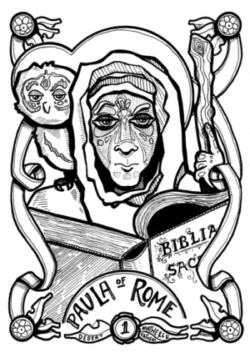May 28, 2016
Spiritual Direction and the Transgender Person
Spirituality
Spiritual direction can be a wonderful, life-giving experience for gender non-conforming people. With the right director—someone empathic and nonjudgmental—it can be a safe place to explore all of who God created you to be without fear of discrimination or harassment (two facts of life for many transgender persons).
Spiritual directors who want to be open and affirming of transgender persons need to be aware of a few key principles for the direction relationship to be healthy:
1. Know appropriate terminology. You may or may not be talking a lot in direction about transgender issues (that would be up to the directee) but a cisgender director still needs to be aware of the importance of language. Cisgender refers to a person whose self-identity conforms with the gender that corresponds to their biological sex. Transgender refers to a person whose gender identity, expression or behavior is different from those typically associated with their assigned sex at birth. If you don’t feel you know appropriate terminology for working with transgender persons, go online to the National Center for Transgender Equality (www.nctequality.org) and read about the various terms that are used and how they are used. For example, it is appropriate to speak of transgender persons (use transgender as an adjective) but is considered disrespectful to refer to transgender persons as “transgenders.”
2. Use the pronoun and name that the transgender directee prefers. When Bruce Jenner transitioned to become Caitlyn Jenner it was no longer appropriate to call her Bruce or use the masculine pronoun. She is a transgender woman who deserves to be called what she requests. Some transgender persons prefer to use the pronoun “they” instead of he or she. That may be new for you, and if so you must get used to the use of they in that way.
3. Do not ask about sexual orientation, sex reassignment surgery or other intimate details. It is none of our business and if the directee wants to talk about any of that they will bring it up. Curiosity from a cisgender spiritual director can feel intrusive and inappropriate. You wouldn’t ask a cisgender person about their sexual orientation or genitalia so why would you subject a transgender person to those questions?
4. Know that society has frequently been unkind to transgender persons. If and when a transgender person seeks you out for spiritual direction, you are quite blessed. Your spiritual care of them may be the only spiritual care they have received in a long time. Did you know that in Arizona alone, 77% of transgender persons surveyed reported experiencing harassment or mistreatment on the job? They frequently encounter verbal abuse in hotels, restaurants, buses, airports and at government agencies. The percentage of churches that are truly “open and affirming” to LGBTQ persons is small. This is not something you need to bring up in spiritual direction, but it is important for you to be aware of their reality.
5. Gender identity is insistent, persistent and consistent. It simply is what it is. If you try to change what is, or indicate in any way that you feel someone’s gender identity is “off,” you can do great harm. Variation along the gender spectrum is to be expected because biology loves difference and diversity.
6. The coming out process for a transgender person can be a deeply spiritual process. Be prepared to be profoundly moved if and when they share that process with you. But keep in mind it is their story to share. There is no need for you to call attention to it before they are ready.
7. If you want to be truly open and affirming of gender non-conformists, make sure your marketing materials indicate that you are LGBTQ friendly. It is important that all LGBTQ persons who want to be in spiritual direction be able to find directors who offer safe space and a nonjudgmental presence. Make it explicit, not hidden.
Having said all that, spiritual direction with transgender persons looks identical to spiritual direction with cisgender persons. We explore content that the directee finds important. I once worked with a transgender person for several sessions before I knew he was a transgender man. It wasn’t until he brought it up that it became something we discussed.
Here are a few open-ended questions you might use with a transgender person if they want to talk about their transition:
• What have been the spiritual high points in your life? Low points?
• How has your relationship with God been through this transition?
• Has your understanding of God shifted through it all?
• Where do you find spiritual community?
• What gifts did you discover within yourself as you transitioned?
It is my hope that all spiritual directors are always open and affirming of any person they encounter in direction—regardless of gender identity or expression. The best thing spiritual directors can do to ensure inclusion for transgender persons is to expect them to show up in our practice, talk with our friends and religious institutions about inclusivity, and be “out” ourselves with regard to inclusivity.
Photo credit: torbakhopper via Foter.com / CC BY-ND
—-
By the way, I have openings in my schedule for new directees—regardless of where you live. I can work by phone or Skype or if you live in the Phoenix metro area we can meet in person. If you are interested in learning more about spiritual direction or entering spiritual direction with me, please contact me at teresa@teresablythe.net or visit www.teresablythe.net. Also visit my website for the Phoenix Center for Spiritual Direction.




